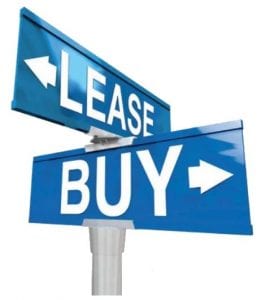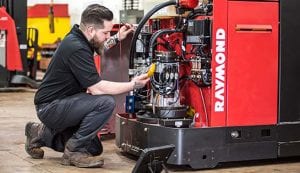 When it comes to leasing, you may think cars and apartments first, but there’s so much more, especially when it comes to your business’ equipment. An operating lease provides an alternative to purchasing in which you acquire equipment for a specific term; usually 3-7 years. But, as with any business decision, there are important pros and cons to be considered. Here are a few things to keep in mind when thinking about whether an operating lease is a good fit for you.
When it comes to leasing, you may think cars and apartments first, but there’s so much more, especially when it comes to your business’ equipment. An operating lease provides an alternative to purchasing in which you acquire equipment for a specific term; usually 3-7 years. But, as with any business decision, there are important pros and cons to be considered. Here are a few things to keep in mind when thinking about whether an operating lease is a good fit for you.
Expenses and Expenditures
Buying may be a significant one-time financial outlay, but some people cannot see themselves making monthly payments for their forklifts, only to give it back to the lessor after the term.
Pros and Cons:
- With leasing, there are little or no upfront costs, just payments each month for the lease term. The expected residual value at the end of the term reduces the monthly cost.
- You have the option at the end of the term to return the equipment, buy it for the residual value or re-lease it.
- Payments are an expense but not an investment in an asset you get to keep.
- Leases can be combined with fixed price maintenance programs, so you have a guaranteed monthly payment for pretty much everything- even incidental damage with some programs.
Ultimately, having the tools you need to run your operation is a cost of doing business – it’s just a matter of deciding how you want to make that investment.
Obsolescence
 The technological advances with lift trucks continues to accelerate. Each new generation are more productive, easier to operate and more energy efficient. Leasing assures you that you won’t get stuck with outdated equipment. But remember, you can always buy out the equipment at the end of the lease if you choose to. It’s the best of both worlds.
The technological advances with lift trucks continues to accelerate. Each new generation are more productive, easier to operate and more energy efficient. Leasing assures you that you won’t get stuck with outdated equipment. But remember, you can always buy out the equipment at the end of the lease if you choose to. It’s the best of both worlds.
Pros and Cons:
- All equipment has a life-span and will eventually become less and less useful and functional.
- You have the option to trade up for the latest and greatest new model.
- Trading in for something new does require having to learn how the new equipment works.
Long-term Business Management
The initial capital outlay when buying can be daunting but purchasing and depreciating assets over time is still a popular strategy. That said, it’s often not the best approach unless you are cash rich, don’t have better uses for your excess capital and, therefore, have no reason to pay a lease interest rate higher than you make from your deposits. Do you currently have the capital to spend or would smaller payments over time be a better option? Could you employ your excess capital more efficiently or would it just sit in your bank account, earning next to nothing. Those are the key questions.
Pros and Cons:
- Use the equipment while you need it for your business, expense the monthly lease costs and get rid of it when you don’t.
- If you buy, you will depreciate it and thereby reduce your taxable income.
If you have any tips to share on leasing forklifts or other material handling equipment, please leave a comment below. If you’re interested in learning more about customizable solutions to help manage your budget, we can help.



Leave a Reply
You must be logged in to post a comment.